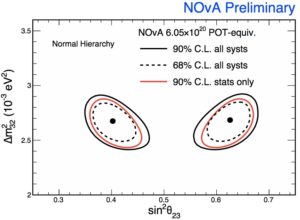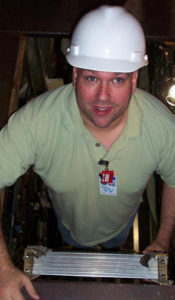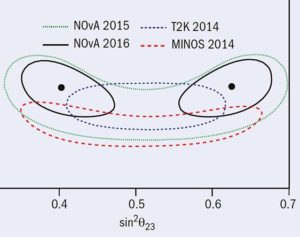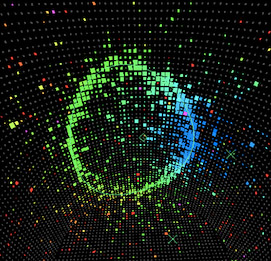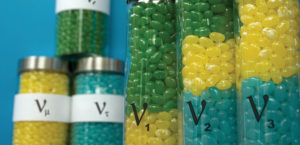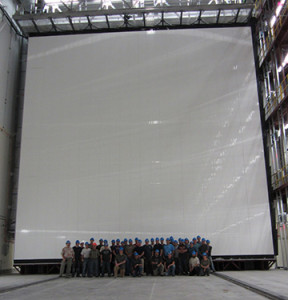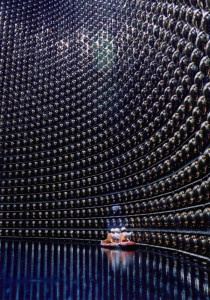Author's posts
Nov 29
CSU Part of DOE Advanced Scientific Computing HEP Project
Prof. Norm Buchanan of the Colorado State University Physics Department is part of a new team centered at Fermilab National Lab funded to develop new high-performance computing tools for use in high-energy physics (HEP). The SciDAC-4 (Data Analytics on HPC) project will project bring together HEP and ASCR (Advanced Scientific Computing Research) scientists from P5-critical …
Apr 10
NOvA appearance and disappearance results submitted for publication.
NOvA’s latest appearance and disappearance results, corresponding to 6.05E20 POT) have been submitted for publication. Both results are posted to the HEP archives ( https://arxiv.org/pdf/1701.05891.pdf and https://arxiv.org/pdf/1703.03328.pdf ). The results utilize the first two years of neutrino (forward horn current) operation. The appearance results show a slight preference for normal mass hierarchy and delta_CP around …
Oct 17
Prof. Norm Buchanan Awarded $514,000 for Continued Development of Photon Detection System for DUNE
Prof. Norm Buchanan has been awarded $514k for the next year to continue development of the photon detection system for the Deep Underground Neutrino Experiment (DUNE). Buchanan’s group is responsible for the engineering as well as quality assurance and quality control of the photon detection system. Senior engineer David Warner is the system engineer and …
Aug 16
NOvA Shines New Light on the Way that Neutrinos Behave
The latest NOvA results show indications that the muon and tau flavor states may not maximally mix and that the third neutrino mass state is dominated by one or the other. The result corresponds to about one sixth of NOvA’s expected data set. Data collected over the next year should firm up the measurement. The …
Aug 10
Latest T2K Results May Hint at Matter over Anti-Matter Make up of the Universe
The T2K collaboration has released new results that may indicate neutrinos and anti-neutrinos oscillate differently. Two articles describing the exciting result can be found in ScienceDaily and International Business Times. The T2K public website contains public information and T2K scientific publications.
Mar 16
The NOvA Experiment
The NOvA experiment is a long-baseline neutrino oscillation experiment utilizing the world’s most powerful neutrino beam. The neutrino beam originates at Fermilab and travels 810 km to the 14 kiloton far detector located in northern Minnesota. The primary physics goals of NOvA are to attempt to measure the CP-violating phase angle and determine the neutrino …
Mar 16
The T2K Experiment
The T2K experiment is a long-baseline neutrino oscillation experiment based in Japan. It utilizes a muon neutrino beam from the J-PARC accelerator which is sent 295 kilometers underground to the Super-Kamiokande detector (SK) in the Kamioka mine in Japan. The SK experiment is a giant water tank surrounded by photo-multiplier tubes to detect the feeble …


